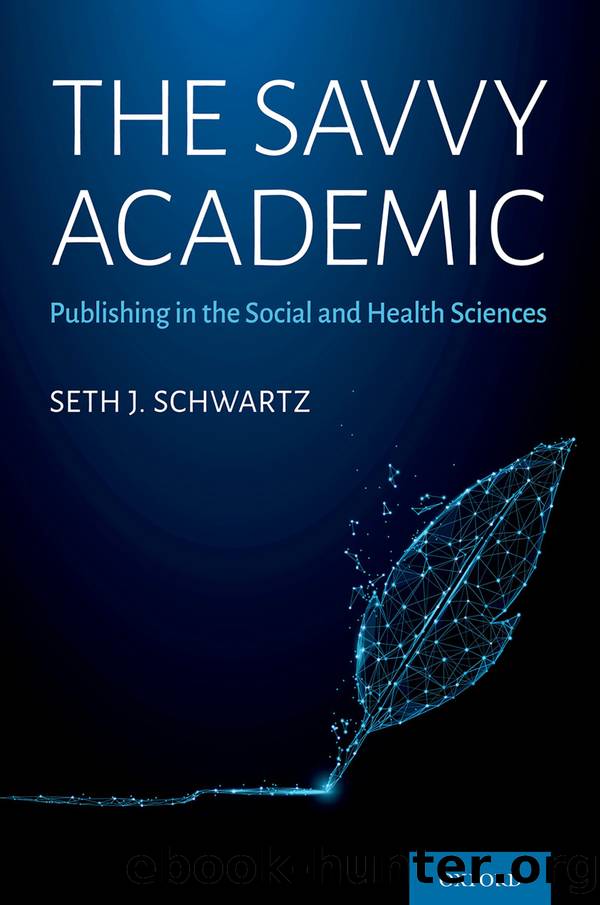The Savvy Academic by Seth J. Schwartz

Author:Seth J. Schwartz
Language: eng
Format: epub
Publisher: Oxford University Press
Published: 2021-06-15T00:00:00+00:00
Tips for Cutting Length
Toward the end of the editing phase, you may find yourself in a position where you are over the journalâs space limit and you need to reduce length. Here I offer several tips for cutting length from a paper. The tips are somewhat different depending on whether you are dealing with a word limit or a page limit.
The most general tip I can offer is to be as economical as possible with words. I can remember a manuscript many years ago where a reviewer advised me to âbe more pithy.â I had to look the word up, but pithy essentially means economical with words. Rather than saying âThe current investigation involved recruiting a sample of 200 young adults,â we could say âWe recruited 200 young adults.â For those writers with more verbose writing styles, being pithy can require self-disciplineânot necessarily on the first draft, but while you are editing and sharpening the draft. Look for longer, more flowery sentences and cut them back to the most essential message. Remove clauses that are not necessary to make your points. And active voice tends to require fewer words than passive voice does; for example, âWe recruited 250 participantsâ is four words, whereas âTwo hundred fifty participants were recruitedâ is six words. (Remember that we cannot start a sentence with a number written in numerical formâa number must be written as a word if it is the first word in the sentence.)
Take a look at the following sentence:
The current results illustrate the value of developing measures that assess the whole of childhood, from the earliest days of infancy through the time when adolescents finish high school.
A pithier way of writing this sentence might be:
Our findings suggest that measures need to be developed to assess children from infancy through adolescence.
Sometimes, rephrasing can allow us to cut out a couple of words. For example:
Original: Our results may have important implications for the development of interventions.
Rephrased: Our results may have important implications for intervention development.
Original: Journals are often delayed in the publication of accepted manuscripts.
Rephrased: Journals are often delayed in publishing accepted manuscripts.
Download
This site does not store any files on its server. We only index and link to content provided by other sites. Please contact the content providers to delete copyright contents if any and email us, we'll remove relevant links or contents immediately.
Asking the Right Questions: A Guide to Critical Thinking by M. Neil Browne & Stuart M. Keeley(5775)
Autoboyography by Christina Lauren(5235)
Eat That Frog! by Brian Tracy(4542)
Dialogue by Robert McKee(4405)
Sticky Fingers by Joe Hagan(4201)
Journeys Out of the Body by Robert Monroe(3624)
Annapurna by Maurice Herzog(3470)
Full Circle by Michael Palin(3450)
Schaum's Quick Guide to Writing Great Short Stories by Margaret Lucke(3381)
Elements of Style 2017 by Richard De A'Morelli(3350)
The Art of Dramatic Writing: Its Basis in the Creative Interpretation of Human Motives by Egri Lajos(3068)
Atlas Obscura by Joshua Foer(2963)
Why I Write by George Orwell(2955)
The Fight by Norman Mailer(2943)
The Diviners by Libba Bray(2939)
In Patagonia by Bruce Chatwin(2932)
The Mental Game of Writing: How to Overcome Obstacles, Stay Creative and Productive, and Free Your Mind for Success by James Scott Bell(2909)
Venice by Jan Morris(2575)
The Elements of Style by William Strunk and E. B. White(2475)
